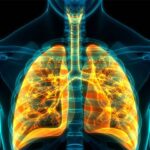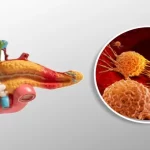
Cancer is a significant concern in India, with over 1.5 million new cases reported annually. Despite a lower overall rate compared to the worldwide, survival rates are poor, with only a third of patients surviving beyond five years. Unlike global trends, more women in India are diagnosed with cancer than men, largely due to current breast, cervical, ovarian, and uterine cancers. These cancers, which account for over 70% of cases in women, generally have better survival rates. In contrast, men generally suffer from more aggressive lung and oral cancers linked to tobacco use. Dr. MSS Keerthi, well-known as one of the best cancer specialists in Hyderabad, points out that while lower than 10% of breast cancers are inherited in India, heritable and environmental procurators remain significant. Understanding these trends is vital, especially with breast cancer being the most common cancer among Indian women.
Common Types of Cancer in India:
India faces a diverse range of cancers, with some types being more prevalent due to genetic, lifestyle, and environmental factors. The most common types of cancer in India include:
- Breast Cancer: This is the most constantly diagnosed cancer among women in India. The lack of awareness, lacking screening facilities and cultural stigmas frequently lead to late diagnoses, making treatment more demanding.
- Cervical Cancer: This cancer is a major health issue for Indian women. Despite being largely preventable through regular Pap smears and HPV vaccinations, many women do not have access to these precautionary measures, affecting high circumstance rates.
- Lung Cancer: Traditionally more common in men due to advanced smoking rates, lung cancer is now increasingly affecting women, partly due to secondary smoke and rising air pollution levels.
- Colorectal Cancer: Affecting both men and women, colorectal cancer is on the advancement in India. Changes in diet, increased consumption of reused foods, and sedentary lifestyles contribute to this trend.
- Oral Cancer: More current among men due to advanced tobacco use, oral cancer still poses a significant risk to women, especially those who use smokeless tobacco products.
How Cancer Affects Women?
Cancer impacts women in multifaceted ways, extending beyond the physical symptoms to emotional, psychological, and social dimensions.
- Physical Impact: Cancers Similar to breast and cervical cancer directly affect the reproductive organs. Treatments like surgery, chemotherapy, and radiation can cause side effects similar to pregnancy, hormonal imbalances, and early menopause.
- Emotional and Psychological Impact: The journey from diagnosis to treatment is emotionally testing. Women constantly bear multitudinous responsibilities, involving caregiving and professional duties, which can consolidate their emotional burden. Anxiety, depression, and panic of recurrence are common psychological effects faced by women with cancer.
- Social Impact: In numerous parts of India, there’s a social stigma attached to cancer. Women may face discrimination and aloneness, which can discourage them from seeking timely treatment. The lack of social support can further complicate their mental health challenges.
How to Prevent Cancer?
Prevention is a cornerstone in the fight against cancer. Here are some effective strategies to reduce the risk:
- Regular Screenings: Early detection through screenings like mammograms, Pap smears, and HPV tests can significantly improve treatment issues. Women should be encouraged to undergo regular check-ups.
- Healthy Lifestyle: Adopting a healthy diet rich in fruits, vegetables, entire granules, and spare proteins can lower the cancer threat. Regular physical activity, maintaining a healthy weight, and avoiding tobacco and insane alcohol are pivotal preventative measures.
- Vaccinations: Vaccines similar to the HPV vaccine can prevent infections that cause cancer. Raising awareness and ensuring access to these vaccines are vital ways in cancer prevention.
- Avoiding trouble Factors: Limiting exposure to known carcinogens, such as polluted air, hazardous chemicals, and inordinate sun exposure, can reduce cancer trouble. Safe occupational practices and environmental regulations are also essential.
- Education and Awareness: Increasing public awareness about the importance of early detection, healthy lifestyle choices, and available preventative measures can empower individuals to take a visionary way against cancer.
As we conclude, the impact of cancer on women in India highlights the significance of proactive healthcare and awareness. Dr. MSS Keerthi, a leading oncologist specialist in Hyderabad, advocates for early discovery and personalized treatment strategies. With compassionate care and advanced expertise, Dr. Keerthi has guided many patients through their cancer journeys. Take charge of your health — book an appointment with Dr. MSS Keerthi for preventative screenings or specialized treatment.







